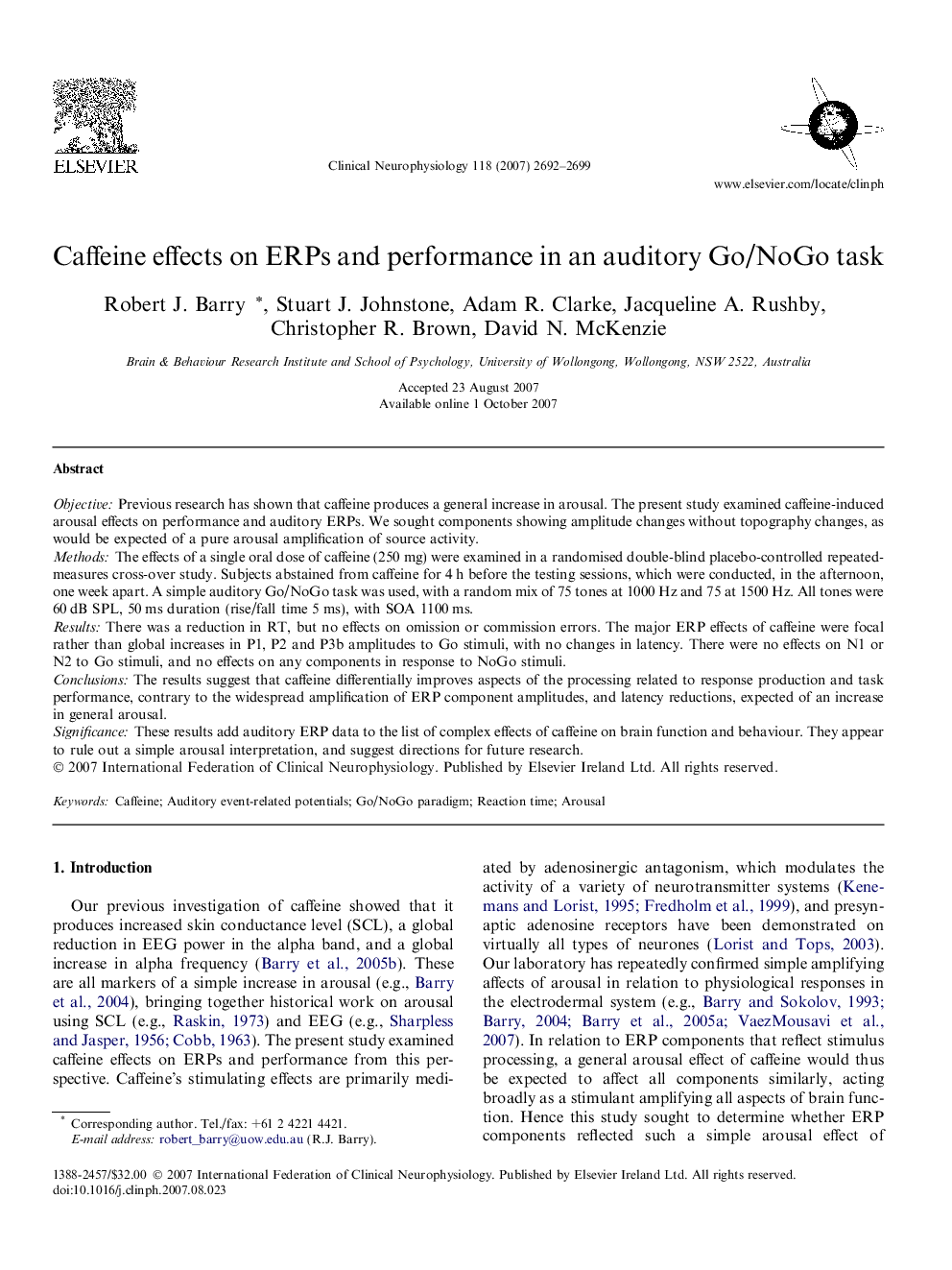| Article ID | Journal | Published Year | Pages | File Type |
|---|---|---|---|---|
| 3047230 | Clinical Neurophysiology | 2007 | 8 Pages |
ObjectivePrevious research has shown that caffeine produces a general increase in arousal. The present study examined caffeine-induced arousal effects on performance and auditory ERPs. We sought components showing amplitude changes without topography changes, as would be expected of a pure arousal amplification of source activity.MethodsThe effects of a single oral dose of caffeine (250 mg) were examined in a randomised double-blind placebo-controlled repeated-measures cross-over study. Subjects abstained from caffeine for 4 h before the testing sessions, which were conducted, in the afternoon, one week apart. A simple auditory Go/NoGo task was used, with a random mix of 75 tones at 1000 Hz and 75 at 1500 Hz. All tones were 60 dB SPL, 50 ms duration (rise/fall time 5 ms), with SOA 1100 ms.ResultsThere was a reduction in RT, but no effects on omission or commission errors. The major ERP effects of caffeine were focal rather than global increases in P1, P2 and P3b amplitudes to Go stimuli, with no changes in latency. There were no effects on N1 or N2 to Go stimuli, and no effects on any components in response to NoGo stimuli.ConclusionsThe results suggest that caffeine differentially improves aspects of the processing related to response production and task performance, contrary to the widespread amplification of ERP component amplitudes, and latency reductions, expected of an increase in general arousal.SignificanceThese results add auditory ERP data to the list of complex effects of caffeine on brain function and behaviour. They appear to rule out a simple arousal interpretation, and suggest directions for future research.
